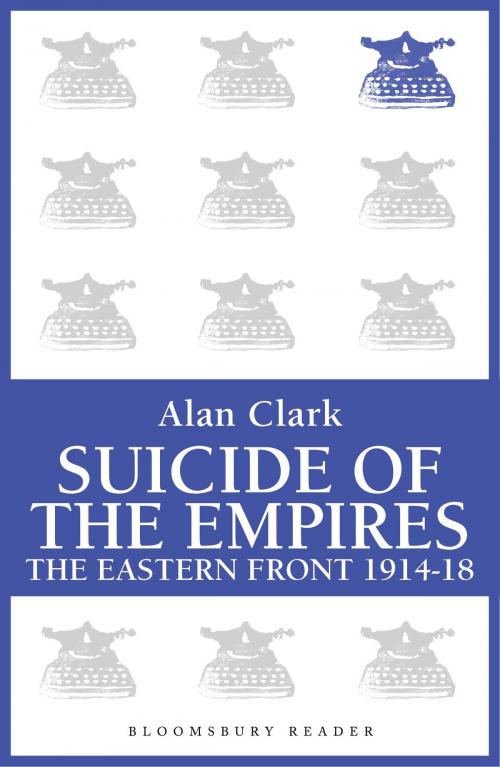| Author: | Alan Clark | ISBN: | 9781448214082 |
| Publisher: | Bloomsbury Publishing | Publication: | March 6, 2014 |
| Imprint: | Bloomsbury Reader | Language: | English |
| Author: | Alan Clark |
| ISBN: | 9781448214082 |
| Publisher: | Bloomsbury Publishing |
| Publication: | March 6, 2014 |
| Imprint: | Bloomsbury Reader |
| Language: | English |
On the outbreak of war in 1914, the armies of the Western Front soon became bogged down in the mud of Flanders and it is these events that many people associate most strongly with the First World War – but its origins and the strategy which governed all but its closing months lay in the East.
In the wide plains and forests of the Eastern Europe the three great Empires – Russia, Germany, Austria-Hungary – grappled in a series of titanic but little known battles involving millions of men and hundreds of miles of front. It was the Germans, with their excellent equipment and intelligent leadership who dominated the battlefield, even when outnumbered. The Russian and Hapsburg armies moved across a truly Napoleonic canvas with huge masses of cavalry, infantry and baggage.
Shortly after the outbreak of war the Russian 'steamroller' had lurched into Prussia only to be hurled back amid the marshes of Tannenberg. Later defeats were caused by the Russian revolution itself with the downfall of the Tsar and the mutiny of their soldiers.
For three years the fighting swung indeterminately back and forth and Alan Clark in the Suicide of the Empires, first published in 1971, describes in clear terms the campaigns which provoked the downfall of three great empires and left the world changed forever.
On the outbreak of war in 1914, the armies of the Western Front soon became bogged down in the mud of Flanders and it is these events that many people associate most strongly with the First World War – but its origins and the strategy which governed all but its closing months lay in the East.
In the wide plains and forests of the Eastern Europe the three great Empires – Russia, Germany, Austria-Hungary – grappled in a series of titanic but little known battles involving millions of men and hundreds of miles of front. It was the Germans, with their excellent equipment and intelligent leadership who dominated the battlefield, even when outnumbered. The Russian and Hapsburg armies moved across a truly Napoleonic canvas with huge masses of cavalry, infantry and baggage.
Shortly after the outbreak of war the Russian 'steamroller' had lurched into Prussia only to be hurled back amid the marshes of Tannenberg. Later defeats were caused by the Russian revolution itself with the downfall of the Tsar and the mutiny of their soldiers.
For three years the fighting swung indeterminately back and forth and Alan Clark in the Suicide of the Empires, first published in 1971, describes in clear terms the campaigns which provoked the downfall of three great empires and left the world changed forever.















